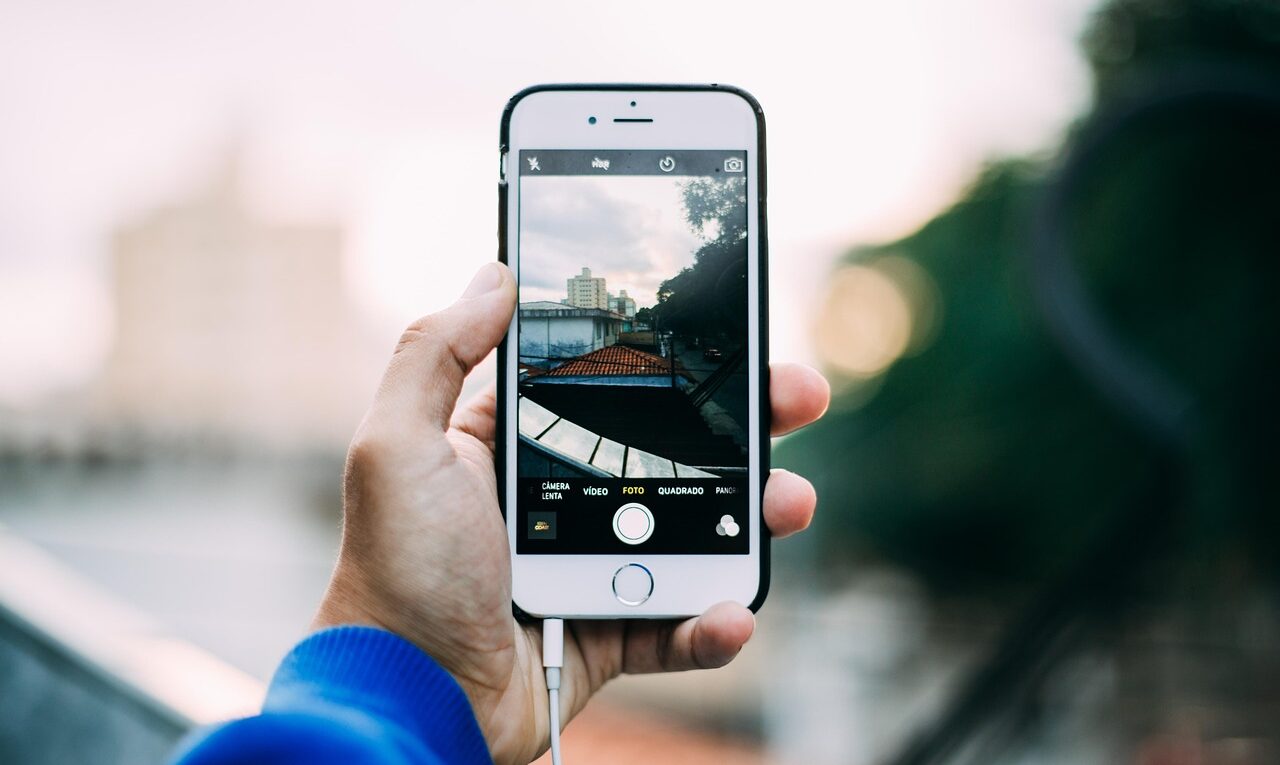How to Reduce Screen Time for Better Mental Focus: A Science-Backed Approach to Regaining Clarity
How to Reduce Screen Time for Better Mental Focus: A Science-Backed Approach to Regaining Clarity
Learn effective ways to reduce screen time and improve your mental focus, productivity, and emotional well-being in today’s digital age.
Read Disclaimer
In a world that never logs off, the screens around us have quietly evolved from mere tools of productivity to constant companions in our daily routines. From the moment we open our eyes and reach for our smartphones to check notifications, until we scroll ourselves to sleep at night, our lives orbit around screens. They serve our work, entertain us, inform us, connect us—but somewhere along the way, they’ve also begun to blur our mental focus, strain our attention, and scatter our thoughts. This phenomenon is no longer limited to tech professionals or social media influencers. It affects students, doctors, homemakers, retirees, and children alike. We are all caught in the glowing grip of screens, and our brains are starting to show signs of fatigue.
It’s easy to understand why. The digital world is designed to hijack our attention. Every swipe, like, and notification is carefully crafted to engage us just long enough so we forget why we picked up the phone in the first place. Our nervous system, which evolved to detect threats in the wild and solve complex physical problems, now finds itself constantly toggling between screens, multitasking through tabs, and attempting to digest more information than it can ever process. This digital overload doesn’t just steal our time—it chips away at our mental clarity, our ability to concentrate, and even our emotional resilience. We find it harder to sit with a book, to hold a deep conversation, or to simply let our minds wander in peace.

But the good news is, awareness is the first step. Once we understand how excessive screen time erodes our mental focus, we begin to see the small but powerful changes we can make to reclaim our cognitive space. It’s not about throwing away our devices or escaping to a remote forest. It’s about intentional choices, boundaries, and smarter habits. It’s about learning to use technology without being used by it.
One of the first practical approaches is to start measuring your screen time without judgment. Most smartphones and computers now come with built-in tracking tools that offer daily and weekly summaries. These metrics can be eye-opening. You may believe you’re only on your phone for an hour or two, but the numbers might reveal otherwise. Observing these patterns can help you spot which apps or activities consume most of your time, and from there, you can set realistic goals—say, reducing one hour a day at first or designating “screen-free” zones in your home.
In parallel, bringing structure to your digital habits creates psychological boundaries. For example, the concept of “time blocking” your screen use can be a game changer. Just like you schedule meetings or meals, scheduling specific times to check emails or scroll through social media helps prevent impulsive usage. During non-screen time, redirecting your focus toward meaningful, offline activities—gardening, cooking, journaling, physical exercise, or face-to-face conversations—acts as a mental detox. These analog experiences enrich the brain in ways that screens never can, encouraging presence, creativity, and calm.
Another crucial element is mindful transitions. One of the biggest attention drains comes not from how long we’re on screens, but how often we switch between tasks. The human brain wasn’t built for rapid context switching, and every shift—say from writing an email to checking a message—demands a reset. This is called “attention residue,” where part of your brain stays stuck in the previous task, making it harder to fully engage with the current one. By reducing screen multitasking and committing to one task at a time, you not only preserve energy but also significantly boost mental clarity.

The influence of blue light exposure on our focus and circadian rhythm is another topic worth highlighting. Blue light, emitted by most screens, mimics daylight and suppresses melatonin production, the hormone that signals sleep. When exposed at night, it confuses the brain, making it harder to fall asleep and stay asleep. Poor sleep, in turn, erodes attention span and mental sharpness during the day. To combat this, experts recommend using blue light filters in the evening, setting devices to “night mode,” and ideally, avoiding screens at least an hour before bed. Replacing that time with calming activities like reading a physical book, meditating, or listening to soothing music can create a restorative evening routine.
The workplace and educational settings also play a vital role in shaping screen habits. Remote work, online classes, and virtual meetings have become the new normal. While technology enables flexibility, it also leads to digital burnout. Creating conscious breaks between video calls or limiting Zoom meetings to certain hours can prevent mental fatigue. The Pomodoro Technique—where you work for 25 minutes and then take a 5-minute break—has shown benefits in maintaining productivity without feeling drained. And during those breaks, it’s best to look away from any screen and let your eyes rest or move your body to restore focus.
Interestingly, there’s also a neurological component to screen addiction and diminished attention span. Studies have found that constant exposure to short-form content—like reels, TikToks, and 10-second stories—can rewire the brain’s reward system. These bite-sized dopamine hits condition us to expect instant gratification, reducing our tolerance for sustained focus. Over time, this makes tasks that require deep thinking—like writing, problem-solving, or even reading an article—feel daunting or boring. Rewiring this pattern involves slowly reintroducing long-form content into your routine, such as reading a book, watching a documentary without multitasking, or listening to a podcast during a walk. Gradually, your brain adapts and redevelops its focus endurance.

Equally important is to re-evaluate the emotional triggers behind screen use. Often, we turn to screens not out of necessity but as an escape—from boredom, stress, loneliness, or anxiety. Recognizing these emotional patterns can help you build healthier coping mechanisms. Instead of mindlessly reaching for your phone when anxious, try a deep-breathing exercise, go for a short walk, or talk to someone you trust. The more intentional you become, the more you train your brain to seek real solutions over digital distractions.
Children and teens deserve a special mention here. Their developing brains are even more susceptible to the effects of screen overuse. For parents, modeling healthy screen behavior, setting screen-time limits, and encouraging outdoor play can make a lasting difference. Using screens as a reward or a babysitter may offer short-term convenience, but long-term mental and emotional health is shaped by meaningful, real-world experiences. For adolescents especially, tech boundaries support better focus, improved sleep, and even greater self-esteem.
There’s also an emerging movement called “digital minimalism,” which advocates for a more conscious and intentional relationship with technology. It’s not about going off-grid but about carefully curating which digital tools truly add value to your life. For example, do you need 20 social media apps, or would one platform suffice for both connection and information? Can you switch from a notification-heavy news app to reading a morning newspaper or weekly digest instead? Making these small shifts reclaims mental bandwidth and brings a sense of control in an otherwise noisy digital world.

Finally, let’s talk about the joy of boredom. Yes, boredom. In our quest to avoid even a second of inactivity, we’ve forgotten that boredom can be a gateway to creativity, self-reflection, and rest. Allowing yourself moments of stillness without rushing to entertain the brain leads to deeper insights and inner calm. It’s in these pauses that the mind resets, restores, and even produces some of its most original ideas. So next time you’re waiting in line or sitting in silence, resist the urge to scroll. Just breathe. Look around. Let your thoughts wander.
As we draw to a close, it’s worth remembering that reducing screen time is not a punishment or a detox trend. It’s a profound act of self-care, a commitment to your own mental focus and emotional clarity. It’s about making room for things that screens can never replace—human connection, nature’s beauty, creative flow, or the deep peace of doing nothing at all. While technology is here to stay and brings undeniable benefits, it doesn’t have to own our minds. With thoughtful choices and gentle discipline, we can reclaim our attention and start living more fully in the present moment, one screen-free breath at a time.
FAQs with Answers:
- Why is screen time bad for mental focus?
Excessive screen time overstimulates the brain, disrupts attention span, and causes mental fatigue, leading to decreased focus. - How much screen time is too much?
More than 2 hours of non-work-related screen use per day is considered excessive, especially for mental and eye health. - Does reducing screen time really help mental clarity?
Yes, cutting down screen time reduces digital fatigue and improves attention span, cognitive function, and mood. - What are the first signs of too much screen exposure?
Common signs include headaches, eye strain, irritability, poor sleep, and inability to concentrate. - How can I track my screen time effectively?
Use built-in features like Screen Time on iOS or Digital Wellbeing on Android to monitor your daily usage. - What are some quick ways to cut down screen time daily?
Turn off notifications, schedule offline hours, use grayscale mode, and designate tech-free zones at home. - Can reducing screen time help anxiety and depression?
Yes, studies link prolonged screen exposure to increased risk of anxiety and depression, particularly due to social media. - What should I do instead of using my phone?
Read a book, go for a walk, practice a hobby, cook a new recipe, or engage in face-to-face conversations. - How does screen time affect sleep and mental health?
Blue light suppresses melatonin, delaying sleep onset and reducing sleep quality, which affects mental health. - Is digital detox helpful for focus?
Yes, even a 24-hour break from screens can reset your brain, increase mindfulness, and improve focus. - Can screen use harm children’s brain development?
Excessive screen use in children is associated with delayed language development, poor academic performance, and emotional dysregulation. - How can parents limit kids’ screen time without resistance?
Use positive reinforcement, set clear boundaries, and engage in offline activities together. - Are productivity apps helpful in reducing screen time?
Yes, apps like Forest, Freedom, or RescueTime can block distractions and track usage to encourage focus. - Does multitasking on screens reduce focus?
Definitely. Switching tasks frequently on screens increases cognitive load and reduces overall productivity. - How long should screen breaks be during work?
Experts suggest the 20-20-20 rule: every 20 minutes, look 20 feet away for 20 seconds. - Is screen-free time before bed really important?
Yes. Avoiding screens 1–2 hours before bed enhances melatonin production and promotes restful sleep. - Can screen time cause decision fatigue?
Constant information flow from screens contributes to cognitive overload, leading to poor decision-making. - Why do I feel mentally tired after using my phone?
Endless scrolling, switching apps, and notifications overload your brain, depleting its energy and attention span. - Can I replace screen time with journaling or meditation?
Yes, both activities improve mental clarity, reduce stress, and promote emotional regulation. - How do social media platforms keep us addicted?
They use algorithms and intermittent rewards (likes, notifications) to trigger dopamine release and habit formation. - Should I delete apps or just limit them?
Start with limiting app use using timers; if that fails, consider uninstalling non-essential or addictive apps. - How can screen time impact productivity at work?
It can reduce deep work capacity, increase procrastination, and cause frequent attention shifts. - Are there benefits to screen use?
Absolutely, when used mindfully—for learning, work, or connection—it’s a powerful tool. The key is balance. - Is it okay to use screens for relaxation?
Yes, but moderation is crucial. Passive consumption like binge-watching should be limited to avoid mental fatigue. - What are tech-free rituals I can adopt?
Morning walks, mindful meals, evening reading, or screen-free family time can be great habits. - Can blue light filters or glasses help?
Yes, they reduce eye strain and may improve sleep quality, though reducing screen time is still more effective. - How do screens affect attention in school or college?
They can hinder focus during lectures or study, especially due to distractions from notifications or multitasking. - Can group challenges help in cutting down screen use?
Yes, accountability and social motivation can make the process more enjoyable and effective. - Does using screens for work count in total screen time?
Yes, though it’s often necessary, breaks and ergonomics still matter to reduce its impact. - Is screen time reduction a permanent change or temporary detox?
It should be a lifestyle shift—consistent reduction is better than occasional detoxes for long-term mental focus.

Yes https://topolakd.net
Interesting analysis! Seeing localized payment options like GCash & PayMaya with platforms like phspin app casino really boosts accessibility for Filipino players. Smart move focusing on user experience! 🧐
Díky za zajímavý příspěvek, detailní analýzy utkání mi hodně pomáhají pochopit
strategii týmů.
Jako milovník fotbalové atmosféry jsem ocenil přehled největších mezinárodních turnajů.
Takové články mi pomáhají lépe se připravit na další zápasy.
Výborný text, je vidět, že autoři mají skutečný přehled a dlouholeté zkušenosti.
Oceňuji zaměření na fotbalové strategie a dlouhodobé trendy v lize.
Díky tomu mám pocit, že sleduji fotbal z úplně jiné perspektivy.
Parádní obsah, obzvlášť se mi líbila část o historii mistrovství a vlivu na dnešní fotbal.
Praktické rady k sázení na fotbal jsou užitečné pro každého fanouška, který si chce
zkusit štěstí.
Takové články udržují fanoušky v obraze a pomáhají jim být vždy o krok napřed. https://cz.futbik.org/
Great article, thanks for sharing your insights!
If anyone is searching for trustworthy resources about online
casinos, is a good starting point that I often recommend.
From my own experience is that specialized portals collect
guides and strategies that make learning easier.
A few minutes of research can prevent losing money on shady platforms.
It’s good when readers get a reminder to think critically.
Thanks again for putting this together, I’ll
be checking your updates in the future. https://www.planetkey.de/party-planet-nintendo-switch-code-kaufen
Contenu intéressant, vous expliquez les détails des paris en ligne et des casinos de façon claire.
Si quelqu’un recherche des plateformes fiables
pour jouer, 1xbet est certainement l’un des choix les plus populaires.
D’après mon expérience, télécharger le 1xbet apk pour android rend tout le processus très pratique.
Faire quelques recherches sur télécharger 1xbet apk ou 1xbet
ios aide à éviter les sites douteux.
J’aime quand les auteurs montrent où télécharger 1xbet
pour android et comment commencer à parier.
Avec 1xbet mobile sénégal télécharger vous restez toujours connecté aux paris sportifs en direct et aux machines à sous.
Merci encore pour ce partage, ces informations sur télécharger 1xbet sont précieuses et je vais les recommander à mes amis. https://friv200.com/
Jesteś ciekawy świata Mostbet?
W dynamicznie rozwijającej się branży iGaming, Mostbet
jest miejscem dla tych, którzy kochają ryzyko i nagrody.
Gracze z wielu krajów wybierają Mostbet, ponieważ oferuje idealne połączenie zabawy
i strategii.
Niezależnie od tego, czy jesteś poszukiwaczem bonusowych przygód – Mostbet
daje coś wyjątkowego.
Możesz zacząć grać już dziś w naszym polecanym kasynie i odebrać swój bonus.
Śledź ten link, aby rozpocząć: Mostbet.
Graj odpowiedzialnie, aby w pełni wykorzystać swój czas z Mostbet. https://podkarpackie2oo.pl/
Opravdu hodnotné informace, oceňuji, že se zaměřujete nejen na výsledky, ale i na taktiku a
individuální výkony hráčů.
Jako pravidelný sledující evropských lig jsem ocenil aktuální rozbory trenérských taktik.
Takové články mi pomáhají chápat souvislosti mezi
jednotlivými ligami.
Výborný text, je vidět, že autoři mají skutečný přehled
a dlouholeté zkušenosti.
Oceňuji zaměření na fotbalové strategie a dlouhodobé trendy v lize.
Díky tomu mám pocit, že sleduji fotbal z úplně jiné perspektivy.
Díky za sdílení tak zajímavého obsahu, opravdu mě baví číst články, kde
jsou nejen fakta, ale i odborné předpovědi.
Praktické rady k sázení na fotbal jsou skvělým doplněním běžných novinek
a výsledků.
Je vidět, že na přípravě obsahu pracuje
tým s opravdovým nadšením pro fotbal. https://cz.futbik.org/2025/02/04/ronaldo-vs-messi-kdo-zanecha-vetsi-odkaz/
**mindvault**
mindvault is a premium cognitive support formula created for adults 45+. It’s thoughtfully designed to help maintain clear thinking
**breathe**
breathe is a plant-powered tincture crafted to promote lung performance and enhance your breathing quality.
Hey there, been hitting up 7m ma cao lately. Keeps me in the loop on the scores. Good shout if you’re following the action!
us poker sites that accept paypal
References:
jobmonster.co.nz
Is 365jllegit legit? From my experience, yeah it looks right so far. Had a smooth experience with deposits and withdrawals. Check it out here: 365jllegit
paypal casino canada
References:
https://jobs.jantakenya.com/companies/best-online-casinos-australia-2025-top-australian-casino-sites/
online slots uk paypal
References:
http://excelrenforcement.com/companies/play-paypal-pokies
online casinos that accept paypal
References:
behired.eu
us online casinos paypal
References:
lazerjobs.in
paypal casino uk
References:
canadiannewcomerjobs.ca
gamble online with paypal
References:
https://sigorta.jobs/employer/paypal-casinos-top-online-casinos-that-accept-paypal/